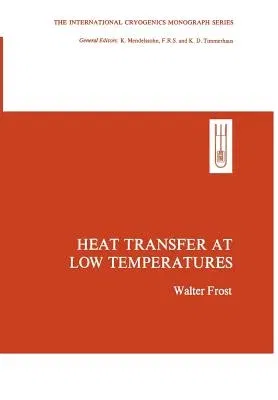Walter Frost
(Author)Heat Transfer at Low Temperatures (1975)Hardcover - 1975, 1 April 1975

Qty
1
Turbo
Ships in 2 - 3 days
In Stock
Free Delivery
Cash on Delivery
15 Days
Free Returns
Secure Checkout

Part of Series
International Cryogenics Monograph
Part of Series
International Cryogenics Monograph Series
Print Length
362 pages
Language
English
Publisher
Springer
Date Published
1 Apr 1975
ISBN-10
0306305755
ISBN-13
9780306305757
Description
Product Details
Author:
Book Edition:
1975
Book Format:
Hardcover
Country of Origin:
US
Date Published:
1 April 1975
Dimensions:
22.86 x
15.24 x
2.54 cm
ISBN-10:
0306305755
ISBN-13:
9780306305757
Language:
English
Location:
New York, NY
Pages:
362
Publisher:
Weight:
712.14 gm